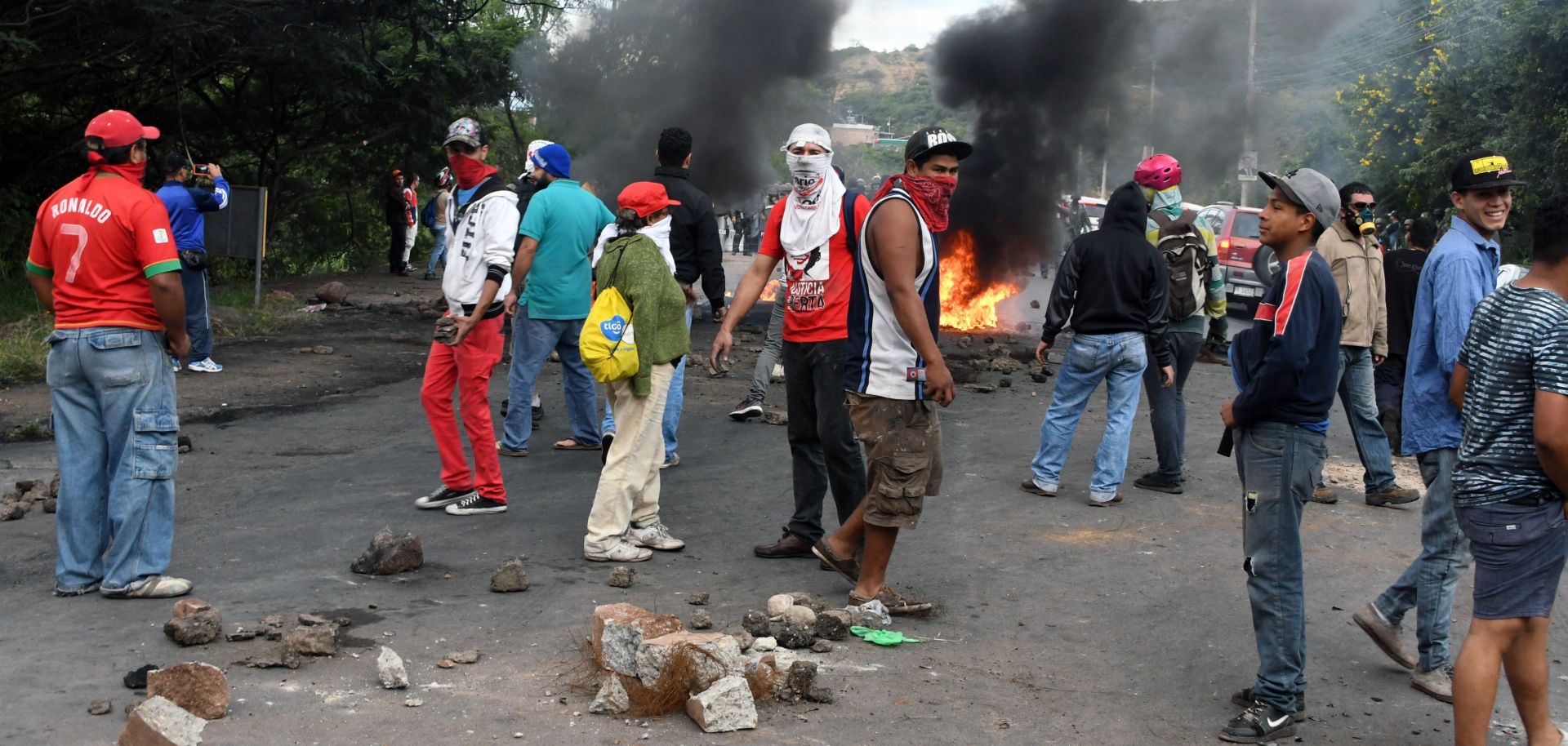ASSESSMENTS
The Smoldering Hot Spots of Latin American Political Instability
Jan 3, 2018 | 09:00 GMT

Supporters of presidential candidate Salvador Nasralla set up barricades to protest the re-election of President Juan Orlando Hernandez, in Tegucigalpa on Dec. 22, 2017. The election was marred by widespread claims of voter fraud.
(ORLANDO SIERRA/AFP/Getty Images)
Highlights
- Transitions of political power in Latin America have become generally peaceful over the past three decades. But in Bolivia, Cuba, and Honduras — where deeply entrenched governments will dispute control against political challengers — domestic politics will become more unstable over the coming years.
- Bolivian President Evo Morales' weakening hold over domestic politics will be the main driver of instability in that country in coming years.
- In Cuba, the eventual lifting of the U.S. economic embargo will bring with it more money, leaving political leaders to jockey for influence and greater access to revenue from trade and tourism.
- In Honduras, political unrest will persist over the next few years as the country's opposition tries to resist unpopular government moves.
Subscribe Now
SubscribeAlready have an account?
